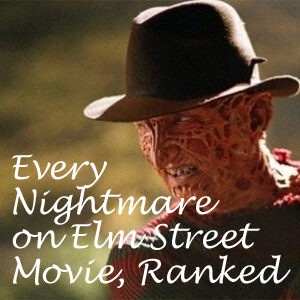Like everyone, I think “Catcher in the Rye” is a brilliant book. I think J.D. Salinger’s other three books (actually compilations of his magazine short stories and novellas) range from very good to OK — “Nine Stories” has a couple gems (but also a couple duds), “Franny and Zooey” is readable and, well, I haven’t plowed all the way through “Raise High the Roof Beam, Carpenters and Seymour: An Introduction” yet.
Still, whenever a legendary author dies — whether you’re a fan or not — it’s interesting to reflect on the ways he influenced the pop culture you love. Even if you’ve never read Salinger — whose four books were published from 1959 to ’63, and who died at age 91 on Wednesday — odds are good that he influenced one of your favorite authors, TV shows or movies.
Here are six examples that stand out for me:
In my favorite movie of 2002, Jake Gyllenhaal’s character goes by the name of Holden Caulfield because he feels put upon by his dull parents and mind-numbing job at a retail store. “Yeah, I’m depressed,” says love interest Jennifer Aniston at one point, “but you … You’re really depressed.” “Catcher in the Rye” has never been adapted to film, but “The Good Girl” borrows the book’s emotional arc, for sure.
In Season 2’s “Booklovers,” my favorite episode from the 1999-2002 series, Judy notes that her favorite book is “Franny and Zooey.” It says a lot about the character’s “always comes in second” complex that she would pick what is clearly Salinger’s second-best book as her favorite. Also, Franny and Zooey (Is it Zoe-ee or Zoo-ee? She’s heard it both ways), both have some issues to work through — so there’s that common ground, too.
3. “Studio 60 on the Sunset Strip” and all of Aaron Sorkin’s TV shows
I haven’t seen this comparison made by anyone else, but — perhaps because I was reading Salinger when “Studio 60” aired in 2006-07 — it’s clear to me that Salinger was the Sorkin of his day. Had he come along during the TV age rather than the magazine age, he would’ve overseen dialogue-laden TV shows like this, where characters have long, rapid-fire exchanges about issues both personal and worldly. I wouldn’t be surprised to learn that Sorkin is a fan of Salinger’s work.
In my favorite movie of 2009, Tom is thrilled to discover that he and Summer both love “A Perfect Day for Bananafish” (from “Nine Stories”). His little sis warns him that “Just because she likes the same bizarre crap you do doesn’t mean you’re soul mates.” The writers of “(500) Days” could’ve picked any literary reference to show Tom and Summer’s connection, but it’s telling that they chose a story about a guy who is looking for happiness in all the wrong places who ultimately kills himself. (Thank goodness that the film didn’t throw a surprise ending like that at us, but it certainly is effective in Salinger’s yarn.)

5. “Shoeless Joe” by W.P. Kinsella
In this 1982 novel that became the more-famous and less-good movie “Field of Dreams,” the main character kidnaps J.D. Salinger. Many people wondered what Salinger was up to in the years since he became obsessed with his privacy — frankly, he was so out of the spotlight that many people wondered about his basic personality traits. Kinsella portrays Salinger warmly as a baseball lover who is dragged along on a road trip. Kinsella also manages to make Shoeless Joe Jackson — who threw a World Series and was banned from baseball — into a sympathetic character. With these two examinations of little-understood figures, it’s a ridiculous yet completely irresistible book.
6. “Catcher in the Wry” by Bob Uecker
There’s not a lot to explain about this selection. The title for the wry Milwaukee Braves’ catcher’s autobiography just makes me giggle.
Chat about your own favorite Salinger-influenced works in the thread below.

